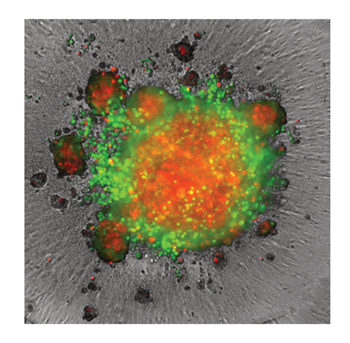Companies looking for Collaborators
Copner Biotech, a biotechnology company based in Ebbw Vale, have partnered up with Jellagen Ltd to explore 3D polymer scaffolds capable of reliably forming organoid structures. An organoid is a 3D multicellular in vitro tissue construct that mimics its corresponding in vivo organ, such that it can be used to study aspects of that organ in the tissue culture dish. The more accurately organoids represent real organ tissues, the more accurate researchers’ data becomes, leading to improved cancer research, for example.
This off-the-shelve product concept, resulting from the complimentary coupling of Copner Biotech’s proprietary scaffold fabrication technology and Jellagen’s Collagen Type 0 chemistry platform technologies, will offer scientists a user-friendly solution to organoid formation with batch-to-batch consistency. Current methods to form organoids have the potential to introduce human error, as well as leading to variable organoid structures. Controlling this variability will ultimately improve experimental procedure by removing unnecessary variables.
Jellagen’s Collagen Type 0 is sustainably derived from jellyfish and is used in cell culture and tissue engineering. To date, the collagen Type 0 matrix has been successfully applied to develop pancreatic and ovarian cancer spheroid models. The advantages of the Collagen Type 0 matrix over other extracellular matrix (ECM) products are that it demonstrates minimal interference with tumour signalling, due to a reduced presence of biologically active motifs in polymer or any mammalian growth factors. This allows the researcher to focus on cell-to-cell interactions, while the matrix interference is minimal.
The companies are now actively looking for collaborators to validate the novel scaffold in a laboratory setting, and if you would like to know more then please contact Jordan Copner (CEO, Copner Biotech) using the following email address: jordan@copnerbiotech.com

Reference: Cellaria Inc. 3D Model of Immune Niche of the Tumor (MINT™)

